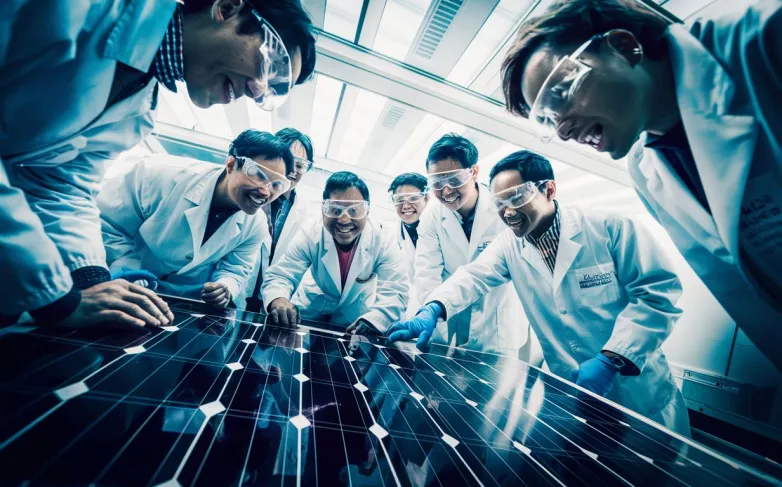NUS Scientists Achieve World-Record Efficiency in Solar Cells
- Revolutionizing solar energy with a world-record efficiency of 27.1%, NUS researchers integrate cyanate into perovskite structure for improved stability and energy efficiency.

Researchers from the National University of Singapore have developed a new triple-junction perovskite/Si tandem solar cell with a world-record efficiency of 27.1%. This breakthrough was achieved by integrating cyanate into the perovskite structure, improving stability and energy efficiency. The team, led by Assistant Professor Hou Yi, demonstrated the successful integration of cyanate into the perovskite solar cell, surpassing the performance of other multi-junction solar cells.
The experimental process leading to this discovery was published in Nature, showcasing the potential of this new technology. The NUS team aims to further enhance the efficiency of triple-junction perovskite/Si tandem solar cells, with theoretical efficiency exceeding 50%. Future research will focus on scaling up the technology to larger modules while maintaining efficiency and stability, paving the way for advancements in solar cell technology.
What led to the record-breaking efficiency of the new triple-junction solar cell?
- Integration of cyanate into the perovskite structure improved stability and energy efficiency
- Successful integration of cyanate surpassed the performance of other multi-junction solar cells
- Experimental process leading to the discovery was published in Nature, showcasing the potential of the new technology
- NUS team aims to further enhance efficiency of triple-junction perovskite/Si tandem solar cells, with theoretical efficiency exceeding 50%
- Future research will focus on scaling up the technology to larger modules while maintaining efficiency and stability, paving the way for advancements in solar cell technology.
Also read

